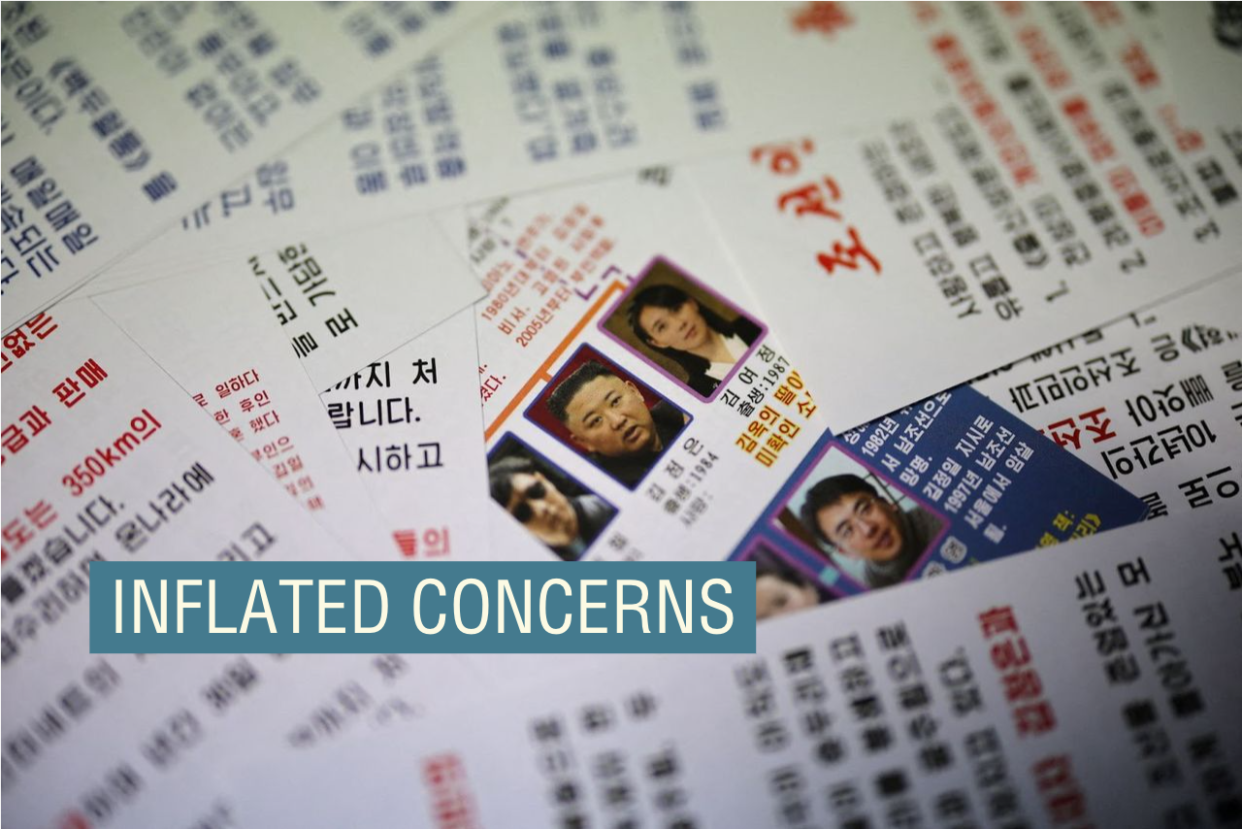Kim Jong Un's sister threatens 'gruesome' price for South Korean leaflet campaign

Insights from Nikkei Asia, The Diplomat, Financial Times, and Center for Strategic and International Studies
The News
A growing number of South Koreans support developing a nuclear deterrent — 66% are in favor, up 6 percentage points from a year ago — as tensions rise with the North.
North Korean leader Kim Jong Un’s sister recently said South Korea would pay “a gruesome and dear price” for sending propaganda leaflets over the border. Seoul had launched balloons carrying the leaflets, along with rice, dollars, and K-pop music, in response to trash- and excrement-filled balloons sent the other direction.
While the North and South have traded balloons like this for years, Seoul is increasingly concerned over strengthening ties between the North and Russia, and the looming possibility of a second Trump presidency.
SIGNALS
North Korea’s saber-rattling could signal frustration with Beijing
Pyongyang’s recent aggression toward South Korea — the “unusual” balloons and a May launch of short-range ballistic missiles into the water on its east coast — may be a covert sign of frustration with the country’s traditional ally, China, experts told Nikkei Asia. In May, leaders from South Korea, China, and Japan held a “rare” summit to boost trilateral ties and discussed pushing for the denuclearization of the Korean peninsula. The display of bonhomie may have angered Pyongyang, which considers both Japan and South Korea “enemies.” The missile launches, however, could also be part of a longer-term strategy, a former CIA analyst told Nikkei: “North Korea’s goal is to perfect its weapons capability, so they have to continue with testing.”
Growing concern in Seoul about a potential Trump presidency
There’s renewed concern in South Korea about a potential second Donald Trump presidency in the US. Trump has previously warned he’d leave South Korea to fend for itself, heightening the country’s “fear of abandonment,” The Economist wrote. During his first term, the former president “lambasted all US allies for free riding,” The Diplomat wrote, and renegotiated a cost-sharing deal with Seoul for troops stationed in the country. South Korea significantly increased its contribution, but it’s possible that Trump may still not be satisfied with the terms of the relationship if re-elected. In a 2023 post on Truth Social, he referred to the deal, saying, “I had a deal for full payment to us, $Billions, and Biden gave it away. Such a shame!!!”
‘Strategic elites’ are far less supportive of nuclear weapons
Experts believe it’s unlikely that South Korea will develop nuclear weapons: Talks of developing a nuclear arsenal haven’t been “adopted as a matter of policy” yet, a researcher told the Financial Times. One key reason may be that “strategic elites,” like think tank analysts, professors, as well as current and former government officials, appear to be far less favorable toward them than the general public, according to a poll conducted earlier this year by the Center for Strategic and International Studies. Only a third of these elites supported the nuclear option. These differences in support are significant, given that decisions of national security hold the opinion of elites in higher account than that of the general population, the CSIS argued.

